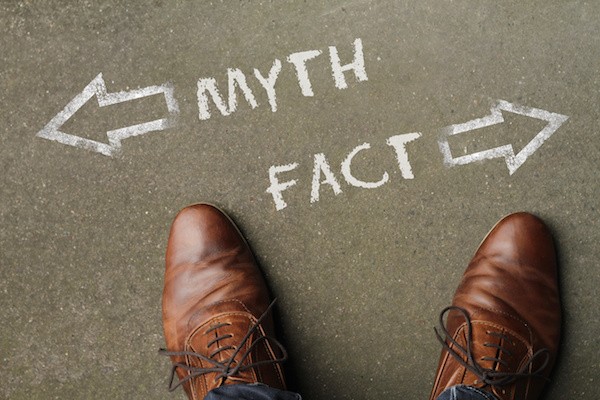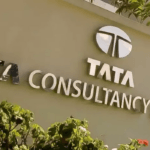During this period of uncertainty, experts are designing new acronyms, such as VUCA (volatility, uncertainty, complexity, and ambiguity) and TUNA (turbulent, uncertain, novel and ambiguous). No only do leaders need to be quick and agile in taking decisions, they need to be reassured about the decisions they take. This leads to many corporations in India engaging executive coaches to work with their leaders.
When does an organisation require a coach?
All high-potential individuals may require coaching to maximise their performance and to achieve their goals effectively. Organisations mainly choose coaches for their high-potential team members to grow to the next level, perform in the current role with maximum potential and for newly joined senior leaders to adapt to the new role and culture quickly.
Family owned and managed business institutions need coaches to support their next-generation family members to enter the business. Coaches help them strike a fine balance between ownership and employment/executive roles. In short, it is advisable to have a coach for all high- potentials — irrespective of the profession or industry they belong to — for their professional development.
What is coaching?
The term ‘coaching’ is used quite loosely. The International Coaching Federation (ICF) defines coaching as partnering with clients in a thought-provoking and creative process that inspires them to maximise their personal and professional potential. Coaching is a goal-oriented, solution-focused, question-based conversation to support the development of the coachee and achievement of their goals. A professional coach will ask and trigger the right questions that open new doors for the coachee. Rather than solving his problems, the coach will help him arrive at its own solution. Coaching is neither advising nor consulting.
There are various types of coaching. The most common ones are:
• Life coaching: This is mostly very personal in nature. The goals chosen to work through are more likely to be ‘life’ related, such as health and well-being goals. Also, the client pays the bill rather than the organisation, and the coaching relationship involves just the two of them, the coach and the coachee. Life coaching is very valid and useful as an individual intervention, and it may indeed ‘turn one’s life around’ if the coach is a professionally trained one and good at what she/he does.
• Organisational / executive coaching: This is coaching that goes on within the context of organisations – often around the profession, business and leadership. The organisational coach focuses on coaching people within their organisational context, understanding that each individual exists within a complex system made up of other people, company systems, processes, culture, behaviours, beliefs and values. Just as it is important to define what organisational coaching is, it is important to define what it is not!
It is also important to distinguish between organisational coaching and business coaching. Business coaching focuses on business building and is a term often used by consultants who advise a business owner on how to build a successful business (note: coaches do not give advice).
Download the ICF 2020 Global Coaching Study, conducted by PwC to know more about the latest trends in the coaching industry, based on 22,457 responses from 161 countries and territories
Difference between coaching and mentoring
Coaching and mentoring are often treated as the same thing, when in fact they are quite different. People seek mentors because they have more experience than them, and therefore, wish to learn from their experiences to develop themselves. One would expect mentors to share their experience and give some advice. In a mentoring relationship, experience obviously sits with the mentor, while in a coaching relationship it sits with the coachee. Coaches are NOT expected to add their experience to the conversation, but to support the coachees in becoming aware of their own experience and utilise it in ways that will help them achieve their development goal.
How to select a coach?
Coaching is a widely-used terminology in the corporate sector nowadays. We also hear a lot about coaches with various expertise — with/without training and proper certification — presenting themselves for opportunities. So, it is important for the decision-makers of the organisations to know about coaching and how to differentiate steel from gas.
When selecting a professional coach, check their credentials. They should be certified by an international independent certification body, such as the ICF. Professional coaches from ICF receive coach-specific training and abide by the ICF Code of Ethics that pledges professional conduct and offers confidentiality and protection to the clients As the world’s largest organisation of professionally-trained coaches, ICF confers instant credibility upon its members and offers the only globally recognised, independent credentialing programme for coach practitioners. International Coaching Federation credentials are awarded to professional coaches who have met stringent education and experience requirements and have demonstrated a thorough understanding of the coaching competencies that set the standard in the profession. Achieving a credential through ICF provides unquestioned legitimacy to a coach’s commitment to excellence in coaching, integrity and dedication to clients.
ICF provides three levels of credentials:
• Master Certified Coach (MCC), requiring 200+ hours of coach-specific training and 2500+ hours of paid coaching experience.
• Professional Certified Coach (PCC), requiring 125+ hours of coach-specific training and 500+ hours of paid coaching experience
• Associate Certified Coach (ACC), requiring 60+ hours of coach-specific training and 100+ hours of coaching experience.
In India, ICF has listed 924 credential holders as of November 2020 (47 MCC, 350 PCC, 527 ACC)
While looking for a coach for oneself or one’s organisation, it is important to verify the credentials carefully. One may come across some untrained “coaches” that have been “coaching” for some time and claim they “don’t really need training”; that they just “need the certificate”. Some of these coaches may be great, having picked up enough from their reading and experience to really understand and practise coaching, but the majority are really not coaches. What they often practice is more like mentoring, or even something akin to “gobbledygook”. Sadly, these so-called coaches give coaching a bad name and harm the profession.
When looking for an executive/organisational coach, make sure to verify their training and preferably select a coach trained by a reputable coach-training organization. Ideally, one accredited by the International Coach Federation or any other reputable coaching organisation. Then ask them about their approach to coaching. It should involve empowering and bring out the full potential in their clients by challenging them, holding them accountable and providing a sounding board (with little to no “advising” or “subject matter expertise”). Coaching is a very critical intervention affecting the organisational culture and investment, so the organisation should take a thoughtful and well-researched decision when it comes to choosing the right coach.
Lastly, ICF’s professional coaches guarantee confidentiality, empathy, clarity and professionalism. They are trained to recognise whether support, other than coaching, is needed and may even offer such resources through referrals.
In 2020, the International Coaching Federation celebrates 25 years as a global organisation for coaches and coaching. Dedicated to advancing the coaching profession by setting high ethical standards, ICF provides independent certification and builds a worldwide network of coaches with credentials, across a variety of coaching disciplines. Its 41,000-plus members located in 147 countries and territories work towards the common goal of enhancing awareness of coaching, upholding the integrity of the profession, and continually educating themselves on the newest research and practices.
In India, ICF is represented by five vibrant chapters — ICF Bengaluru, ICF Chennai, ICF Delhi, ICF Mumbai and ICF Pune — all led by volunteers.
 The author, M R Rajesh Kumar, has over two decades of people management experience with leading family businesses and multinational institutions in the hospitality and manufacturing business space. He has been awarded the designations of Professional Certified Coach (PCC) by the International Coach Federation (ICF) and is a member of the ICF Bengaluru chapter. Kumar is an organisational coach and family business facilitator with GatewaysGlobal Human Capital Solutions LLP.
The author, M R Rajesh Kumar, has over two decades of people management experience with leading family businesses and multinational institutions in the hospitality and manufacturing business space. He has been awarded the designations of Professional Certified Coach (PCC) by the International Coach Federation (ICF) and is a member of the ICF Bengaluru chapter. Kumar is an organisational coach and family business facilitator with GatewaysGlobal Human Capital Solutions LLP.
Value our content... contribute towards our growth. Even a small contribution a month would be of great help for us.
Since eight years, we have been serving the industry through daily news and stories. Our content is free for all and we plan to keep it that way.
Support HRKatha. Pay Here (All it takes is a minute)




































